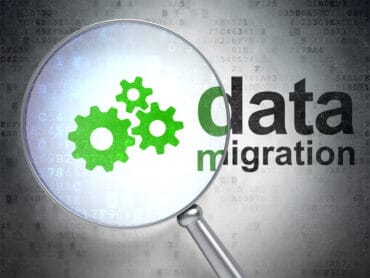
IBM announced a commitment to train two million learners in AI by the end of 2026, with a focus on underrepresented communities.
Keeping pace with news and developments in the real-time analytics market can be a daunting task. Fortunately, we have you covered with a summary of the items our staff comes across each week. And if you prefer it in your inbox, sign up here!
IBM announced a commitment to train two million learners in AI by the end of 2026, with a focus on underrepresented communities. To achieve this goal, IBM is expanding AI education collaborations with universities globally, collaborating with partners to deliver AI training to adult learners, and launching new generative AI coursework through IBM SkillsBuild.
Infosys and NVIDIA announced that they have expanded their strategic collaboration with the aim to help enterprises drive productivity gains with generative AI applications and solutions. The broadened alliance will bring the NVIDIA AI Enterprise ecosystem of models, tools, runtimes, and GPU systems to Infosys Topaz, an AI-first set of services, solutions, and platforms that accelerate business value using generative AI technologies. Through the integration, Infosys will create offerings customers can adopt to easily integrate generative AI into their businesses. Additionally, Infosys plans to set up an NVIDIA Centre of Excellence, where it will train and certify 50,000 of its employees on NVIDIA AI technology to provide generative AI expertise to its vast network of customers across industries.
Oracle showcased new AI-powered capabilities within Oracle Analytics Cloud. Leveraging the Oracle Cloud Infrastructure (OCI) Generative AI service, the new capabilities assist analytics self-service users to conduct sophisticated analysis and make better business decisions without having to wait for data scientists or IT teams more quickly and efficiently. Newly announced capabilities include generative AI data interactions, AI-powered document understanding, contextual insights, and collaboration software integrations.
In other Oracle news, the company announced enhancements to MySQL HeatWave, including support for vector store, generative AI, new in-database machine learning features, MySQL Autopilot enhancements, new HeatWave Lakehouse capabilities, support for JavaScript, acceleration of JSON queries, and support for new analytic operators.
Real-time analytics news in brief
BMC announced additional new integrations for the Control-M (self-hosted) and BMC Helix Control-M (SaaS) offerings. To support the exploding number of cloud and data ecosystem services and applications in the industry, BMC releases multiple new integrations for application, data, and infrastructure categories, including cloud services for AWS, Azure, and Google Cloud Platform; data processing and analytics solutions like Databricks and Snowflake; machine learning services like AWS Sagemaker and Azure Machine Learning; and many other popular components of the modern cloud services and data technology stack.
See also: BMC Adds New Cloud Integrations to SaaS Solutions
Airbyte announced that its community has built more than 1,500 connectors for their own needs in just three months using its no-code connector builder. In addition, recent testing shows the performance of popular data connectors for PostgreSQL and MySQL has increased by a factor of 10 over the past six months.
AMD announced the availability of the new AMD EPYC 8004 Series processors. These new processors bring the “Zen 4c” core into a purpose-built CPU, enabling hardware providers to create energy-efficient and differentiated platforms that can power applications running at the intelligent edge, in data centers, and to power cloud services.
AnswerRocket announced new features of its Max solution to help enterprises tackle a variety of data analysis use cases with purpose-built GenAI analysts. Enhancements to the solution include customizable analyses, structured and unstructured data support, automation of routine analysis workflows, and integration with third-party tools.
Anyscale announced the launch of Anyscale Endpoints, a new service enabling developers to integrate large language models (LLMs) into their applications using popular LLM APIs. To that end, Endpoints lets developers take advantage of open-source LLMs without the complexity of traditional ML infrastructure. Additionally, Anyscale provides the ability to run the Endpoints service within the customer’s existing cloud account on AWS (Amazon Web Services) or GCP (Google Cloud Platform).
Automation Anywhere announced an expansion of its Automation Success Platform, enabling enterprises to put AI to work securely throughout their organizations. To that end, the company unveiled a new Responsible AI Layer and announced four product updates, including the brand-new Autopilot, which enables the rapid development of end-to-end automations from Process Discovery, using the power of generative AI. The company also announced new, expanded features in Automation Co-Pilot for Business Users, Automation Co-Pilot for Automators, and Document Automation.
Blues announced a series of enhanced offerings based on its flagship IIoT connectivity product, Notecard. The expanded Notecard offerings include Notecard Cell+WiFi, Notecard WiFi, Notecard LoRa, and Notecard Chips Edition options that enable additional reliable and hybrid connectivity, positioning accuracy, and scalable development.
DataStax announced a new JSON API for Astra DB. Available via the open-source data API gateway, Stargate, the new JSON API lets JavaScript developers easily leverage Astra DB as a vector database for their large language model (LLM), AI assistant, and real-time generative AI projects.
Deci announced the launch of generative AI Foundation Models, DeciDiffusion 1.0 and DeciLM 6B, as well as its inference Software Development Kit (SDK) – Infery LLM. The models cater to diverse applications, ranging from content and code generation to image creation and chat applications, among many others.
Elastic announced the launch of Elastic AI Assistant for Observability and general availability of Universal Profiling, providing site reliability engineers (SREs) at all levels of expertise with context-aware, relevant, and actionable operational insights that are specific to their IT environment.
Galileo recently announced the general availability of Galileo LLM Studio, a platform for building trustworthy LLM applications. The platform has Prompt and Fine-Tune modules and now has a third module, Monitor, that provides a continuous feedback loop for developers and data scientists.
Harness announced the availability of Gitness, a fully open-source Git platform that brings collaboration, speed, security, and intelligence to software development. Gitness is freely available at gitness.com. The company also announced four new product modules on the Harness platform, including Harness Code Repository, Harness Internal Developer Portal, Harness Infrastructure as Code Management, and Harness Software Supply Chain Assurance.
ibi announced the launch of ibi Open Data Hub for Mainframe. The solution provides access and utilization of mainframe data by directly bringing this data into web-based business analytics capabilities.
IBM announced it can help organizations accelerate the capture, calculation, and analysis of Scope 3 greenhouse gas (GHG) emissions through the integration of NLP in the IBM Envizi ESG Suite. The new text classification capabilities are designed to enable efficiency and accuracy by helping organizations automatically ingest, organize, and manage the spend data required for emissions calculations and external disclosures.
Kinetica announced a native Large Language Model (LLM) combined with Kinetica’s architecture that allows users to perform ad-hoc data analysis on real-time, structured data at speed using natural language. Unlike public LLMs, no external API call is required, and data never leaves the customer’s environment.
Kyndi announced the immediate availability of its latest Generative AI Answer Engine, Kyndi 6.0. The solution includes a new generative AI-enabled feature called “Topics” that lets users curate, validate, and manage knowledge bases while ensuring the correct and relevant answers are always available. Another new capability is a generative AI-enabled user interface called “Citation,” which presents end users with the citations of the content sources for enhanced AI explainability.
Melissa announced the availability of data tools that power Know Your Business (KYB) processes. By accessing multiple data streams containing billions of up-to-date global contact records, KYB complements Know Your Customer (KYC) operations designed to identify individuals and their associated levels of risk. Using the tools to power KYB strategies, financial institutions can assess the legitimacy and credibility of business customers in real time.
Metriport launched its Medical API, a healthcare API platform built entirely on open-source code, to retrieve patient clinical histories from all major electronic health records (EHR) systems. The solution is fully HIPAA and SOC 2 Type II compliant and connects to the largest health information networks in the country.
MongoDB announced MongoDB Atlas for Manufacturing and Automotive, a new initiative that helps organizations innovate with real-time data and build applications that take advantage of intelligent, connected technology. The initiative includes expert-led innovation workshops, tailored technology partnerships, and industry-specific knowledge accelerators.
OneStream Software announced several key innovations designed to increase end-user speed to insights across Financial Performance Management, Operational Planning & Analytics, and Forecasting processes. New updates to the OneStream platform include technology modernization with Microsoft .Net 6, no-code SAP integration through a previewed SAP connector, AI-driven forecasting and automation, expanded solution exchange offerings including ESG planning and reporting, and more.
Pathway announced its LLM-App, a free framework in Python for creating real-time AI applications that continuously learn from proprietary data sources. LLM-App overcomes the data governance challenges that have stalled enterprise adoption of LLMs by building responsive AI applications from data that remains secure and undisturbed in its original storage location.
Provectus continues to advance its First Open-Source Data Discovery (ODD) and Observability Platform. In its v0.16 release, the platform rolls out several key enhancements, including the addition of language translations in Ukrainian, Spanish, French, Chinese, and Armenian to broaden global accessibility; real-time message statuses in its Data Collaboration UI for instant feedback on Slack messages; expanded markdown support for more readable descriptions of Business Terms; and the ability to add Business Names to Dataset Fields, improving user experience by making it more intuitive, clear, and consistent.
Reltio announced several new AI-powered product updates that will empower business leaders to meet surging customer demands for more informed and timely intelligence. Reltio’s new set of AI-powered capabilities includes generative AI-driven search and data visualizations, increased data steward productivity, and automated predictions.
ServiceNow launched its Now Platform Vancouver release, designed to use generative AI and automation to drive business outcomes faster. New in Vancouver is Now Assist for every workflow, which provides ServiceNow customers with generative AI use cases across many business functions. All of the generative AI innovations that are part of ServiceNow’s Now Platform Vancouver release will be generally available in the ServiceNow Store on Sept. 29.
SolarWinds announced the launch of new service management and database observability solutions. The new SolarWinds Enterprise Service Management (ESM) solution extends the value of service management beyond IT teams to improve the management, efficiency, interactions, and user experience. Additionally, SolarWinds announced an upgraded version of its database performance monitoring and DataOps solution, SQL Sentry that includes an enhanced web portal, the introduction of query-level wait statistics, and a revamped Environmental Health Overview (EHO) dashboard.
Starburst announced new additions to both Starburst Galaxy and Starburst Enterprise geared towards supporting customers at every stage of their cloud journeys. Specifically, the company has added Dell storage support for ECS, ObjectScale and Ceph in Starburst Enterprise; on-premises connectivity in Starburst Galaxy; and Unity Catalog integration in Starburst Galaxy.
StreamSets, a Software AG company, announced the latest version of the StreamSets platform trial along with new features to help organizations modernize their data ecosystems. The latest version of the platform trial will provide users with 30-day access to the platform. During the trial period, users will have full access to all of the features and functionality of the platform, including StreamSets Data Collector and StreamSets Transformer for Snowflake.
Sylabs announced the release of SingularityCE 4.0. This version establishes a seamless bridge for traditional enterprise container packages adhering to OCI-compliant standards (such as Docker and Podman) to be efficiently integrated and used by Singularity, consolidating the container runtime for diverse use cases in performance-intensive computing environments. The update also initiates a Container Device Interface enhancement to enable ease of use between containers and GPUs.
Telmai unveiled its latest release featuring new features designed to simplify and accelerate data observability adoption for the enterprise. Telmai’s release empowers data engineers/architects and product owners to harness powerful time travel features, build multi-attribute data contracts, conduct in-depth root cause analysis of data failures, and gain greater control over data privacy and residency via its new private cloud offerings.
Timeplus announced that it has licensed its core engine, Proton, as open source for developers worldwide. Timeplus developed its unified streaming + historical analytics platform with its historical online analytical processing (OLAP) using ClickHouse. Leveraging Timeplus and ClickHouse code, developers can now natively and seamlessly connect historical data and analytics capabilities to solve complex real-time analytics use cases.
TruEra has launched TruEra AI Observability, a full-lifecycle AI observability solution providing monitoring, debugging, and testing for ML models in a single SaaS offering. TruEra AI Observability covers both generative and traditional (discriminative) ML models, meeting customer needs for observability across their full portfolio of AI applications.
WSO2 introduced the WSO2 API Platform for Kubernetes (WSO2 APK), which is an API management solution engineered to leverage the inherent strengths of Kubernetes. The fully open-source platform adheres to the Kubernetes Gateway API specification, and it seamlessly integrates with Kubernetes’ robust features, including container orchestration, namespaces for organizing clusters, scalability, and service discovery, among others.
Partnerships, collaborations, and more
Cisco and Splunk today announced a definitive agreement under which Cisco intends to acquire Splunk for $28 billion. The acquisition builds on Splunk’s heritage of helping organizations enhance their digital resilience and will accelerate Cisco’s strategy to securely connect everything to make anything possible. The aim of the acquisition is to help make organizations more secure and resilient.
See also: Cisco Acquires Splunk for $28 Billion
Acceldata announced that it has acquired Bewgle. With the acquisition, Acceldata will expand its enterprise data observability capabilities into AI and LLM pipelines to eliminate risk and ensure reliable, high-quality data pipelines across cloud, hybrid, and on-premises environments.
Akeneo announced the acquisition of Unifai. The strategic acquisition will help enhance Akeneo’s Product Cloud offering, infusing intelligence and cutting-edge technology to further elevate product experiences for brands, manufacturers, retailers, and distributors globally.
Anyscale announced a collaboration with NVIDIA to boost the performance and efficiency of large language model (LLM) development. The companies are integrating NVIDIA AI software into Anyscale’s scalable computing platforms, including Ray open source, the Anyscale Platform, and Anyscale Endpoints.
Buildkite Pty Ltd. announced the company has entered into a definitive agreement to acquire Packagecloud. Buildkite is combining Packagecloud’s unified package management technology with its Continuous Integration and Deployment (CI/CD) and Testing tools to help DevOps teams improve their productivity. As a result of the acquisition, Buildkite will add first-class package repository support before the end of the year.
Immuta announced the general availability of its integration with Databricks Unity Catalog, which enables customers to natively orchestrate data access control across the Databricks Lakehouse Platform. As a unified governance solution, Databricks Unity Catalog with Immuta allows customers to centrally manage security and governance in the Databricks Lakehouse Platform.
Impossible Cloud announced that its advanced cloud storage system has been certified by Veritas Technologiesfor integration with Veritas Backup Exec. Impossible Cloud has also become an Elite Partner in the Veritas Technology Ecosystem program.
IOTech announced a new partnership with Advantech to deliver advanced edge data processing solutions for smart manufacturing and industrial automation. The partnership will enable a new range of integrated edge hardware and software solutions for manufacturers to automate data exchanges between equipment and control systems, in addition to simplifying the adoption of new technologies like AI and machine vision.
LTIMindtree announced the launch of Testing as a Service for Oracle SaaS. Some of the common challenges faced by the testing teams are the manual and time-consuming nature of the testing processes, leaving relatively less time for analyzing and deploying updates. LTIMindtree’s Testing as a Service for Oracle SaaS on the RELY platform was created to resolve various challenges that the Oracle Cloud testing and validation pose.
Nokia introduced its AVA Data Suite, designed to run on Google Cloud, to help communication service providers (CSPs) standardize data and facilitate the development of AI/ML software applications. To that end, Nokia AVA Data Suite seamlessly integrates with Google Cloud’s BigQuery and Vertex AI to create AI/ML use cases.
NIQ announced that the NIQ Connect platform capabilities have now expanded to use Snowflake Secure Data Sharing. This capability empowers customers in 84 global markets with enhanced data-sharing capabilities and seamless real-time data access.
Opendatasoft announced that it is now available on the Amazon Web Services (AWS) Marketplace. Listing on the AWS Marketplace makes it simpler and faster for organizations to benefit from Opendatasoft’s data portal solution. This enables organizations to rapidly create and distribute digital data experiences to feed their ecosystems, democratizing data sharing, and driving business advantage.
Oracle Cloud Infrastructure announced the general availability of NVIDIA H100 Tensor Core GPUs on OCI Compute, with NVIDIA L40S GPUs coming soon. This collaboration between OCI and NVIDIA will provide an NVIDIA H100 and L40S GPU-accelerated infrastructure for generative AI.
The Presto Foundation announced two significant new contributions to Presto, the open-source SQL query engine for data analytics and the open data lakehouse. IBM is donating its AWS Lake Formation integration for Presto, and Uber is donating its Redis-based historical statistics provider for Presto. These community contributions coincide with the 11th birthday of Presto and the 4th year it has operated under the governance of the Linux Foundation.
Privacera announced its integration with Collibra, which enables seamless end-to-end data security and data governance. From data cataloging and data classification to enforcement of data access policies, the integration automates data governance and streamlines compliance and auditing.
Red Hat announced a new industrial edge platform, designed in collaboration with Intel, that will provide a modern approach to building and operating industrial controls. The industrial edge platform is intended to provide a holistic solution that spans from real-time shop floor control and artificial intelligence/machine learning (AI/ML) to full IT manageability.
Vectra AI announced that the Vectra AI Platform is available in CrowdStrike’s Marketplace, a one-stop destination and ecosystem of third-party security products. CrowdStrike Falcon customers can discover, try, buy, and integrate the AI-driven, fully integrated hybrid attack detection, investigation, and response platform.
If your company has real-time analytics news, send your announcements to ssalamone@rtinsights.com.
In case you missed it, here are our most recent previous weekly real-time analytics news roundups:
- Real-time Analytics News for the Week Ending September 16
- Real-time Analytics News for the Week Ending September 9
- Real-time Analytics News for the Week Ending September 2
- Real-time Analytics News for the Week Ending August 26
- Real-time Analytics News for Week Ending August 19
- Real-time Analytics News for Week Ending August 12





























